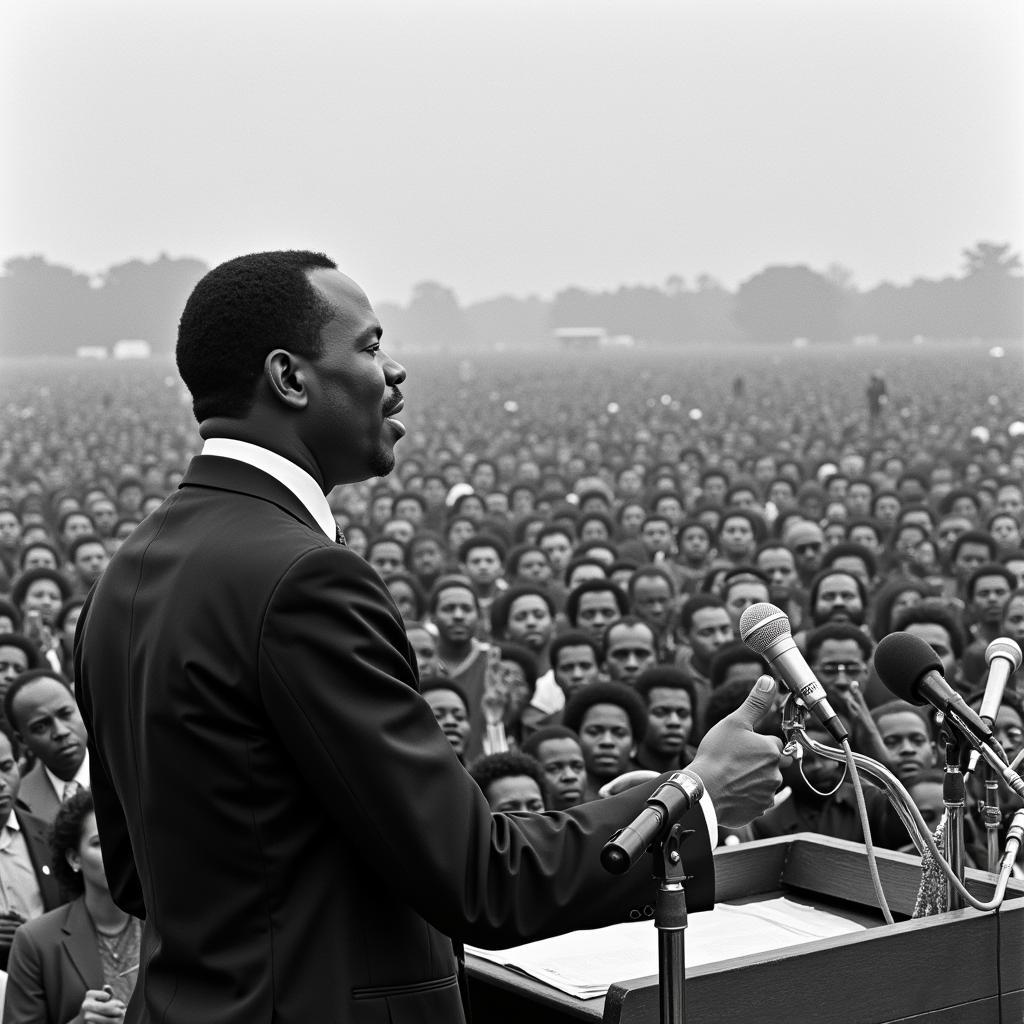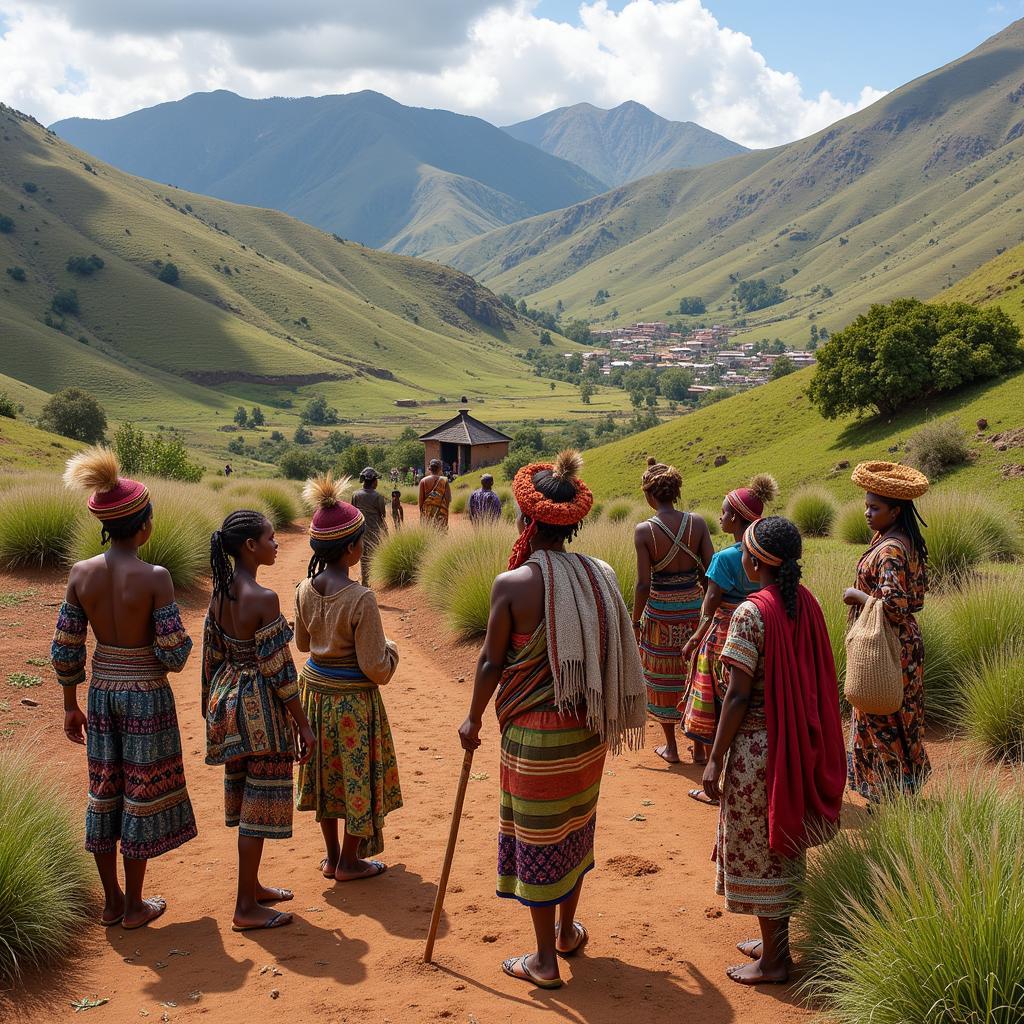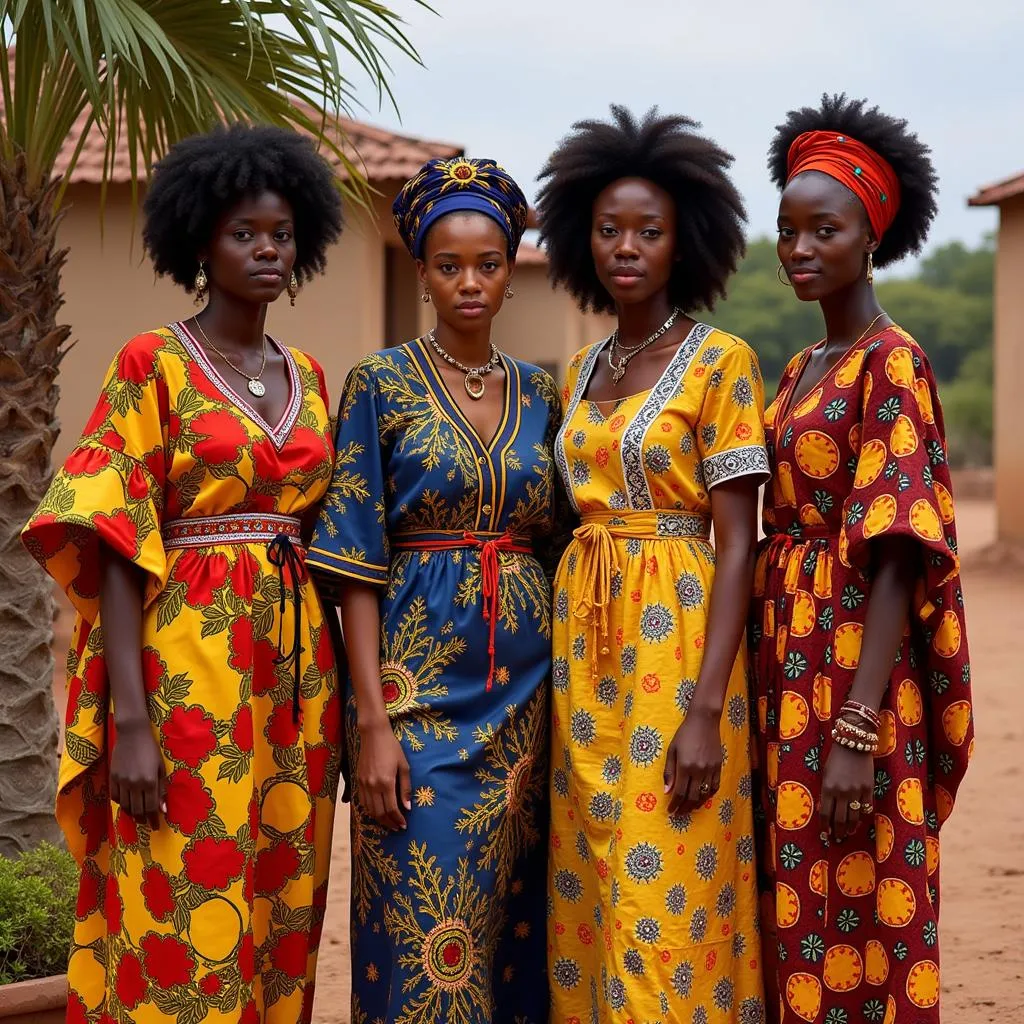African Independence Leaders: Architects of a Continent Reborn
The struggle for African liberation from colonial rule in the 20th century gave rise to a generation of extraordinary leaders. These African Independence Leaders, driven by a potent mix of nationalism, pan-Africanism, and the pursuit of self-determination, spearheaded movements that transformed the political landscape of the continent. Their legacies continue to inspire generations of Africans and shape the destinies of their nations.
 Kwame Nkrumah addressing a crowd
Kwame Nkrumah addressing a crowd
The Pioneers of Freedom: Shaping the Independence Movements
The fight for independence in Africa was multifaceted, marked by peaceful negotiations, armed struggles, and strategic political maneuvering. Leaders like Kwame Nkrumah of Ghana, a staunch advocate of Pan-Africanism, led his nation to become the first sub-Saharan African country to achieve independence from British rule in 1957. His political philosophy, advocating for a united Africa free from colonial influence, resonated across the continent, galvanizing independence movements and inspiring a generation of leaders.
In Senegal, Léopold Sédar Senghor, a renowned poet and philosopher, adopted a different approach. Senghor, a proponent of “negritude,” a literary and philosophical movement celebrating African culture and identity, believed in achieving independence through negotiation and collaboration with France. His approach, while less confrontational, successfully led Senegal to independence in 1960.
Beyond Independence: The Challenges of Nation-Building
Achieving independence was only the first step in a long and arduous journey. Many African nations, emerging from the shadow of colonialism, faced the daunting task of nation-building, grappling with ethnic divisions, economic inequality, and the legacies of colonial rule.
Leaders like Julius Nyerere of Tanzania, advocating for “Ujamaa,” a form of African socialism, attempted to forge national unity and economic development. Nyerere’s vision, emphasizing communal living and self-reliance, aimed to create an egalitarian society free from poverty and exploitation.
However, the path to progress was fraught with challenges. The legacy of colonialism, coupled with Cold War politics, often led to instability and conflict. Leaders like Patrice Lumumba of the Democratic Republic of Congo, who sought to steer his nation away from Western influence, faced opposition and intrigue, culminating in his tragic assassination in 1961.
Enduring Legacies: The Impact of African Independence Leaders
Despite the complexities and setbacks, the legacy of African independence movement leaders remains profound. Their unwavering commitment to self-determination and their vision for a liberated Africa paved the way for significant political, social, and economic transformations.
These leaders, through their actions and ideologies, inspired a generation of Africans to fight for their rights and strive for a better future. Their struggles and sacrifices serve as a reminder of the importance of unity, self-reliance, and the pursuit of justice in the face of adversity.
FAQs
Who are some other notable African independence leaders?
Besides those mentioned, other prominent figures include Jomo Kenyatta (Kenya), Kenneth Kaunda (Zambia), Amilcar Cabral (Guinea-Bissau and Cape Verde), and Ahmed Sékou Touré (Guinea).
What were the main challenges faced by African independence leaders?
They grappled with poverty, illiteracy, disease, ethnic tensions, Cold War pressures, and the neo-colonial agendas of former colonizers.
How did the Organization of African Unity (OAU) contribute to African independence?
Formed in 1963, the OAU, now the African Union, provided a platform for newly independent nations to address shared challenges, promote unity and cooperation, and fight against colonialism and apartheid.
Exploring Further: The African Narrative Unfolds
This glimpse into the world of African independence leaders is just the beginning. For a deeper understanding of their struggles, triumphs, and enduring impact, explore more about:
- African independence movement leaders
- African emancipation
- African countries their capitals and presidents
A Call to Action: Connecting with Africa’s Story
Understanding the past paves the way to shaping a brighter future. Let’s continue the conversation about Africa’s rich history, its vibrant present, and its boundless potential.
For any inquiries or assistance, don’t hesitate to contact us:
- Phone: +255768904061
- Email: kaka.mag@gmail.com
- Address: Mbarali DC Mawindi, Kangaga, Tanzania
Our dedicated customer support team is available 24/7 to assist you.


